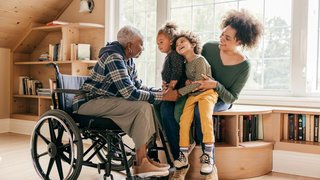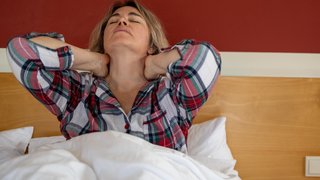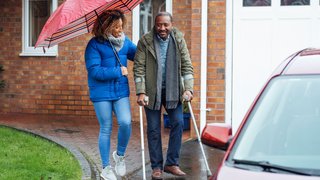Sleep: The real Fountain of Youth
October 23, 2019

For centuries, scientists and simpletons have been searching for the “fountain of youth.” This quest for immortality has been documented as far back as ancient Babylonian, Sumerian, and Egyptian texts.
While our ideas of preserving the beauty of youth have shifted over time, the quest remains constant.
Today, we are quick to buy in to “anti-aging” facial creams, supplements, the hottest celebrity diets, or the latest workout contraption … all chasing the promise of youth!
But what if the real fountain of youth doesn’t come in a bottle? What if the answer we have all been looking for may be as simple as asking yourself: “How am I sleeping?”
How sleep changes as we age
Numerous studies have shown that our sleep quality and patterns change as we age.
Infants require 16+ hours of sleep per day to keep up with their rapidly growing brains. Children need between 8 and 12 hours, depending on their age. And adults should get between 7 and 9 hours per night.
As we get older, our total sleep time decreases and sleep architecture, or how we cycle through different stages of sleep, changes.
Many older adults complain that they have difficulty falling asleep, and they wake up more often during the night, and earlier in the morning. This is partly because older adults spend less time in deep or restorative sleep, and are more easily aroused by noises or body aches and pains. This is particularly true for men, who spend less time in the deep sleep stage.
Here are some of the most significant factors affecting sleep as we age:
- Age-dependent changes (decreases) in sleep quality and quantity
- More nighttime arousals due to comorbid health conditions, such as pain, or waking up to urinate (nocturia)
- Less dreaming
- Changes in sleep patterns and behaviors as a result of life changes and transitions, such as retirement
- Changes in cognitive functioning, such as memory or processing speed, that may be related to chronic sleep deprivation
As we age our risk for health and psychiatric comorbidities increases. Research shows that health conditions such as diabetes, hypertension, heart disease, and sleep apnea can further reduce quality of sleep and increase mortality. Likewise, poor sleep increases risk for these serious health issues. Older adults are also at increased risk for anxiety, chronic stress, depression, and dementia – with sleep disturbance being a common denominator.
6 ways to improve your sleep hygiene

Although we can expect some age-related changes in sleep as we get older, it isn’t a lost cause. To keep your mind, body, and sleep operating at optimal levels, incorporate the following senior-adapted sleep hygiene tips into your daily practice:
1. Maintain a consistent sleep and wake time. Many seniors struggle with this once they enter retirement and have more time and flexibility in their daily schedules. It may feel good to not have to be rushed out the door every morning, but having consistency in your routines will keep your biological clock running more smoothly.
2. Avoid large meals and liquids a few hours prior to bed to limit night time bathroom visits. Also limit caffeine four hours before sleep.
3. Avoid alcohol and sedating medications. Older adults are at increased risk for respiratory depression, confusion, and delirium. Waking up in the night to use the bathroom after taking a sedative or after drinking alcohol is also a safety hazard and increases your risk for falling and sustaining a serious injury.
4. Take a 20-25 minute power nap during the day if you need to, but make sure it’s before 3 p.m. If you nap too late in the day, it may affect your sleep at night.
5. Exercise daily for at least 30 minutes. Not only is this good for your overall health, it helps reduce sleep disturbance related to aging’s unwanted neighbors - anxiety, stress, and pain.
6. Turn off all electronics one to two hours before bed, and especially don’t use them in bed! Remember, your bed is a sanctuary that should be used for sleep and intimacy only!
No surprise here that as we age we can expect to encounter several health challenges, including changes to sleep. But before spending big bucks on the hottest new anti-aging products, try getting a little sleep first! Bottom line, good sleep health is central to overall physical and mental health, quality of life, and quantity of life…the real fountain of youth!
If you are concerned about your sleep and want to learn ways to minimize age-related sleep disturbance, UT Southwestern’s Sleep Medicine and Behavioral Sleep Medicine programs can help. To make an appointment with a sleep specialist, call 214-645-8300, or make an appointment online.
Sleep and Circadian Revelations
UT Southwestern's Dr. Joseph Takahashi has conducted groundbreaking research on understanding the role of sleep behavior in relation to neurological disorders.










